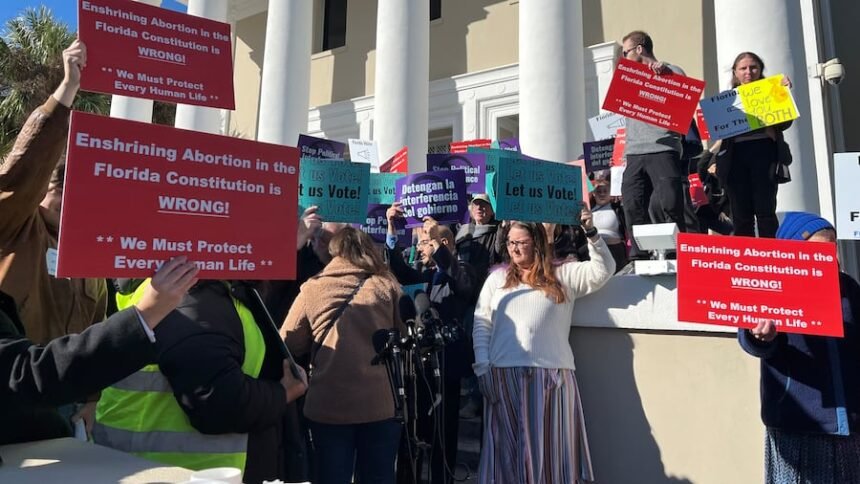In recent developments surrounding Florida’s amendment process, critics have pointed out a perceived double standard in Governor Ron DeSantis’ handling of abortion-related petition drives. This scrutiny comes on the heels of a state investigation into alleged petition fraud linked to a donor of DeSantis.
The controversy began with the grassroots efforts aimed at placing an abortion rights amendment on the ballot, which mobilized activists across the state. However, an investigation into the authenticity of signatures collected for this initiative raised questions about the integrity of the process. Critics argue that the response from the DeSantis administration has been markedly different compared to a previous inquiry into petition fraud concerning Amendment 4, which aimed to restore voting rights to felons in Florida.
In the case of Amendment 4, the investigation into fraud allegations seemed to lose momentum, with many attributing this to the political ties between the donors involved and DeSantis himself. This inconsistency has led to accusations that the governor is selectively enforcing the laws based on political convenience, favoring donors while cracking down on activists advocating for abortion rights.
The implications of these actions are significant, as they not only reflect on the administration’s commitment to electoral integrity but also highlight the contentious political landscape in Florida. With the upcoming elections, the focus on these discrepancies may influence public perception and voter engagement.
As the debate continues to unfold, it’s clear that the intersection of money, politics, and social issues in Florida will remain a focal point for critics and supporters alike, raising an essential dialogue about fairness and consistency in governance.
Overall, the call for transparency and equitable treatment in the electoral process is louder than ever, with many Floridians seeking accountability from their leaders.


Leave a Reply